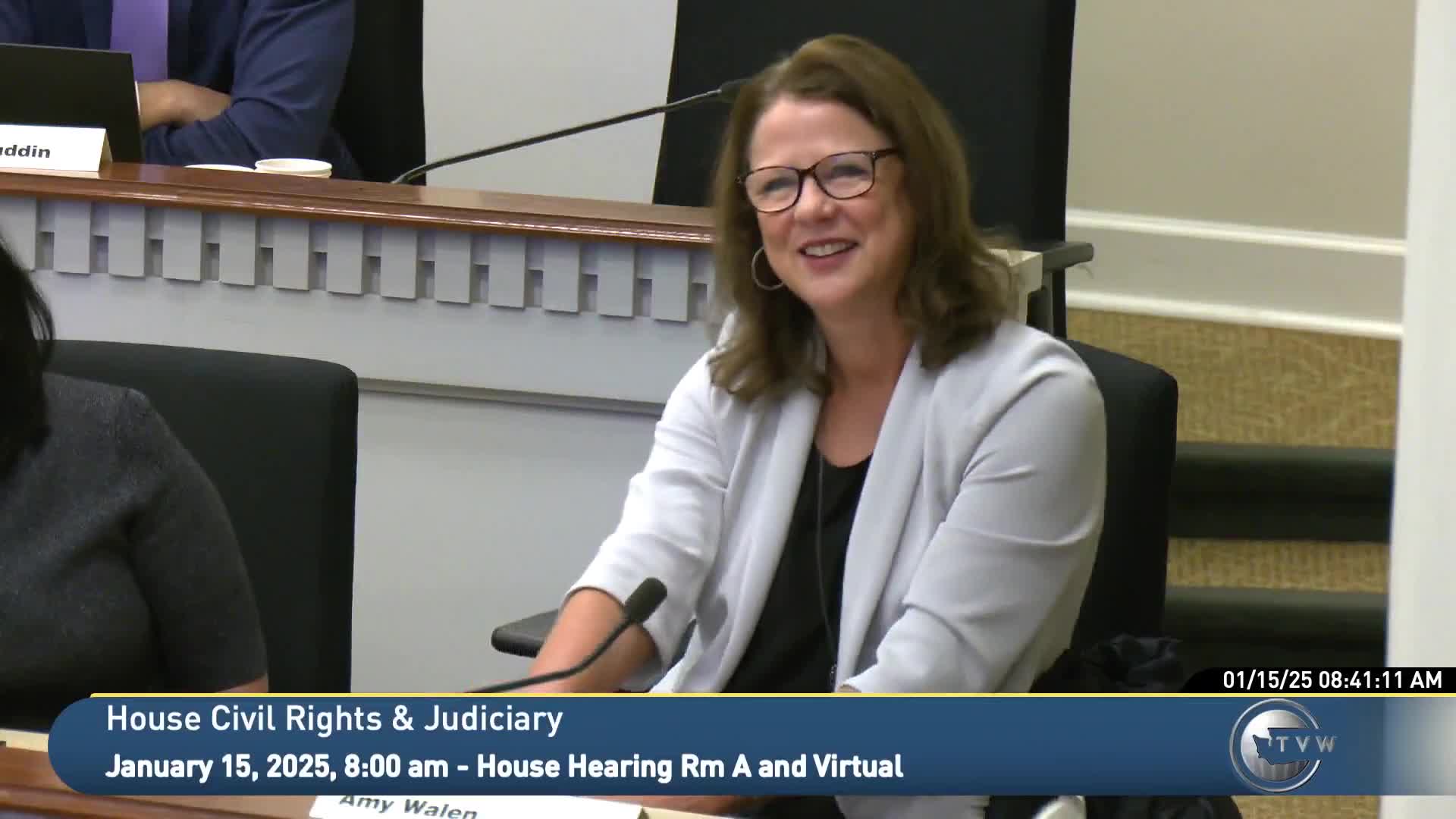Committee hears wide-ranging testimony on competency restoration bill after Trueblood backlog work
Get AI-powered insights, summaries, and transcripts
Subscribe
Summary
Representative Daria Farvar told the committee the bill responds to long-standing problems in Washington’s competency-evaluation and restoration system tied to the Trueblood litigation and rising statewide referral volumes.
Representative Daria Farvar, prime sponsor of House Bill 1218, told the committee the bill responds to long-standing problems in Washington’s competency-evaluation and restoration system tied to the Trueblood litigation and statewide increases in referrals for competency evaluation and restoration.
The proposal would: require improvements in outpatient competency restoration and allow transfer from inpatient to outpatient when appropriate; require courts to consider involuntary medication orders when sufficient evidence exists; create a DSHS-managed growth-cap program that sets a baseline and an incentive cap for inpatient referrals by county and imposes graduated penalties for referrals above the baseline; deposit penalty revenue into a Behavioral Health Diversion Fund that counties can draw from if they reduce inpatient referrals; and direct DSHS and the Health Care Authority to convene a task force to develop protocols and report back by June 1, 2026.
Representative Farvar said Washington is in compliance with court-ordered timelines for Trueblood for the first time but warned that bed projections — including a new forensic hospital opening in 2028 — show capacity will again tighten unless referral trends change. “If it all goes as planned, we are going to have hundreds of beds coming online by 2028,” she said, and added that the state must avoid relying solely on building beds because “a bed built is a bed filled.”
Staff described the bill’s procedural changes, including limits on forensic-navigator appointments for certain felonies, requirements for defendants to comply with outpatient-program conditions, a process to transfer from inpatient to outpatient restoration after court hearing, and a mechanism allowing courts to recall competency orders and issue a warrant for failure to appear after repeated missed appearances. Staff also described the proposed penalty schedule for counties whose inpatient competency orders exceed a baseline: graduated penalties (percentages of the per-day state-hospital rate) for excess inpatient orders, with amounts deposited into the proposed Behavioral Health Diversion Fund and a process for counties to request appropriations if they reduce referrals.
Amber Leaders, senior policy adviser for the governor, and Kevin Bowmancamp, assistant secretary of DSHS’ Behavioral Health Administration, said the state has invested heavily in both forensic and community capacity but that referrals have climbed sharply — from about 3,500 orders near the time of the 2014 Trueblood trial to about 9,000 in 2024 — and that outpatient and diversion options are needed to reduce pressure on state hospitals. Leaders said forensic beds are expensive and that statewide investment choices must balance inpatient capacity with stronger community diversion and services.
Disability Rights Washington attorneys and Trueblood plaintiff counsel Kimberly Mozoff and Chloe Marino supported the bill and urged legislative action to reduce the repeated cycling of people through inpatient restoration. Mozoff cited data showing individuals in the system frequently have multiple prior competency orders and arrests in short spans and said community-based diversion, housing and low-barrier services reduce re-arrest and service use. Marino noted projections showing the new forensic hospital will cost several million dollars per bed and said the state cannot sustainably build capacity at the current referral growth rate.
Other witnesses, including the Washington Association of Prosecuting Attorneys and the Association of Sheriffs and Police Chiefs, opposed the bill as drafted. Prosecutors and some local officials argued many people ordered for restoration have complex needs and that community services are not available in many jurisdictions. Prosecutors also raised concerns about provisions that would limit judicial discretion or withdraw competency orders after missed outpatient appointments. County and city associations said counties do not control independent legal decision-makers (judges, prosecutors, city attorneys) and argued that shifting fiscal liability to county governments for referrals they do not directly control would be inequitable.
Defense and public-defense groups noted protections and process issues they believe require work, including concerns about pre-hearing procedures, whether forensic navigators should be available in all cases, and the mechanics of detention, medication and “cell” hearings. Court and municipal judges asked for more time to hold hearings required by the bill in jurisdictions that hear competency calendars less frequently.
DSHS and forensic-health leaders described how restoration focuses on restoring a defendant’s capacity to understand proceedings and assist counsel rather than providing long-term behavioral-health treatment, and they explained how inpatient restoration periods and potential subsequent periods are ordered and reviewed under current statute. They stressed the importance of expanding outpatient and diversion capacity — and of designing protocols so that outpatient programs are sufficiently individualized to avoid repeated failures and returns to inpatient care.
No vote was taken. The sponsor asked stakeholders to continue negotiations; several organizations offered to work with the sponsor and DSHS on technical drafting and implementation details. The bill includes a statutory task-force requirement and a June 1, 2026 report deadline for protocols and county diversion plan criteria.
